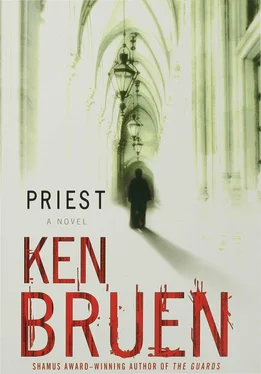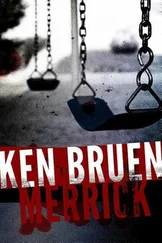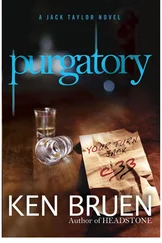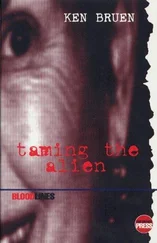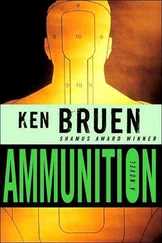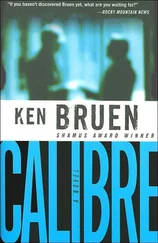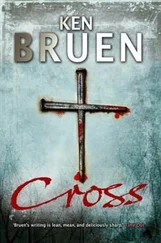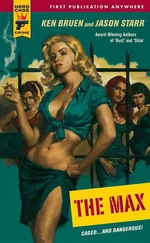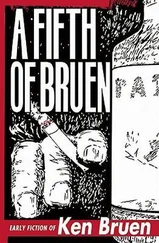Ken Bruen - Priest
Здесь есть возможность читать онлайн «Ken Bruen - Priest» весь текст электронной книги совершенно бесплатно (целиком полную версию без сокращений). В некоторых случаях можно слушать аудио, скачать через торрент в формате fb2 и присутствует краткое содержание. Год выпуска: 0101, ISBN: 0101, Издательство: St. Martin, Жанр: Криминальный детектив, на английском языке. Описание произведения, (предисловие) а так же отзывы посетителей доступны на портале библиотеки ЛибКат.
- Название:Priest
- Автор:
- Издательство:St. Martin
- Жанр:
- Год:0101
- ISBN:9780312341404
- Рейтинг книги:4 / 5. Голосов: 1
-
Избранное:Добавить в избранное
- Отзывы:
-
Ваша оценка:
- 80
- 1
- 2
- 3
- 4
- 5
Priest: краткое содержание, описание и аннотация
Предлагаем к чтению аннотацию, описание, краткое содержание или предисловие (зависит от того, что написал сам автор книги «Priest»). Если вы не нашли необходимую информацию о книге — напишите в комментариях, мы постараемся отыскать её.
Priest — читать онлайн бесплатно полную книгу (весь текст) целиком
Ниже представлен текст книги, разбитый по страницам. Система сохранения места последней прочитанной страницы, позволяет с удобством читать онлайн бесплатно книгу «Priest», без необходимости каждый раз заново искать на чём Вы остановились. Поставьте закладку, и сможете в любой момент перейти на страницу, на которой закончили чтение.
Интервал:
Закладка:
Ken Bruen
Priest
1
‘What’s wasted
isn’t always
the worst
that’s left behind.’
KBWhat I remember most about the mental hospital
The madhouse
The loony bin
The home for the bewildered is a black man may have saved my life.
In Ireland?. . A black saves your life, I mean how likely is that? Sign of the New Ireland and perhaps, just perhaps, indication of the death of the old Jack Taylor. As I’d been for five months, slumped in a chair, a rug over my knees, staring at the wall. Awaiting my medication, dead but for the formalities.
Gone but to wash me.
The black man leaned over me, tapped my head gently, asked,
‘Yo bro, anybody in there?’
I didn’t answer, as I hadn’t answered for the last months. He put his hand on my shoulder, whispered,
‘Nelson be in Galway this day, mon.’
Mon!
My mouth was dry, always, from the heavy dosage.
I croaked,
‘Nelson who?’
He gave me a look, as if I was worse than he’d thought, answered,
‘Mandela, mon.’
I struggled to lift my mind from the pit of snakes I knew were waiting, tried,
‘Why should. . I. . give a shit?’
He lifted his T-shirt — it had the Cameroon team on it — and I recoiled, the first stab of reality, a reality I was fleeing. His chest was raw, ugly, with the angry welts of skin grafts. White, yes, white lacerations laced his torso. I gasped, making human contact in spite of myself. He smiled, said,
‘They was going to deport me, mon, so I set my own self on fire.’
He reached in his jeans, got out a ten-pack of Blue Silk Cut and a lighter, put a cig between my lips, fired me up, said,
‘Now you be smoking too, bro.’
Bro.
That reached in and touched me deeply. Began the process of coming back. He touched my shoulder, went,
‘You stay with me, mon, hear?’
I heard.
The tea trolley came and he got two cups, said,
‘I put in de heavy sugar, get you cranking, fire your mojo.’
I wrapped my hands round the cup, felt the dull warmth, risked a sip. It was good, sweet but comforting. He was eyeing me closely, asked,
‘You coming, bro? You coming on out of there?’
The nicotine was racing in my blood. I asked,
‘Why? Why should I?’
A huge smile, his teeth impossibly white against the black skin. He said,
‘Mon, you be sitting there, dat a slow burn.’
So it started.
I even went to the hospital library. It was tended by a man in his late sixties, wearing black pants and black sweat-shirt. At first I thought the shirt had a white collar but to my horror saw it was dandruff. He had a clerical air, an expression of gravitas, as if he’d read the manual on librarians and went for the image. It was the one area in the whole place that was quiet, you couldn’t hear the quiet anguish so evident in the other rooms.
I thought he was a priest and he stared at me, said,
‘You think I’m a priest.’
He had a Dublin accent, which always has that tone of aggression, as if they can’t be bothered with culchies (country yokels) and are prepared to battle with any peasant who challenges them. A question to a Dublin person is always interpreted as a challenge. I still wasn’t used to speaking. You are silent for months, listening only to white noise, you have to struggle to actually make words. I wasn’t intimidated, though, after what I’d endured, I wasn’t about to allow some gobshite to bully me. Snapped,
‘Hey, I didn’t give you a whole lot of thought, fella.’
Let some Galway edge in there. What I wanted to say was, Jeez, get some anti-dandruff shampoo, but let it slide. He gave a cackle, like some muted banshee, said,
‘I’m a paranoid schizophrenic, but don’t worry, I’m taking my meds so you should be reasonably safe.’
The reasonably was a word to watch. He looked at his wrist, which was bare, and said,
‘Is it that time already? Got to go get my caffeine fix. Don’t steal anything — I’ll know, I’ve counted the books twice.’
Stealing a book was truly the last thing on my mind, but if a Dubliner threatens you? The books were a mix of Agatha Christie, Condensed Reader’s Digests, Sidney Sheldon and three Jackie Collins. A very old volume stood on its lonesome, like a boy who hasn’t been selected for the team. I picked it up. Pascal, Pensées.
Stole that.
Didn’t think I’d ever open it.
I was wrong.
I refused further medication, began to move around, my old limp hurting from the months of inactivity. I felt my eyes retreat from the nine-yard stare, move away from the dead place. After a few days, I was summoned to the psychiatrist’s office, a woman in her late fifties named Joan Murray. She was heavily built but able to carry it, her hands were raw boned. A Claddagh ring on her wedding finger, heart turned in. She said,
‘You’ve astounded me, Jack.’
I managed a tight smile, the one you attain when you first don the uniform of the Guards. It has no relation to humour or warmth but is connected to hostility. She leaned back, flexed her fingers, continued,
‘We don’t see many miracles here. Don’t quote me, but this is where miracles die. In all my years, I’ve never witnessed a restoration like yours. What happened?’
I didn’t want to share the truth, afraid if I articulated it, it might revert. Said,
‘They told me David Beckham was sold.’
She laughed out loud, said,
‘That would do it. I’ve contacted Ban Garda Ni Iomaire — she brought you here, has stayed in touch about your condition.’
Ni Iomaire. Or Ridge, to use the English form. Daughter of an old friend, we’d been unwilling allies on a number of cases. Our relationship was barbed, angry, confrontational but inexplicably lasting. Like marriage. We fought like trapped rats, always biting and snarling at each other. How to explain the dynamics or disfunction of our alliance? Perhaps her uncle, Brendan Smith, had something to do with it. He’d been my sometimes friend, definite source of information and one-time Guard. His suicide had rocked us both. Against her inclinations, she’d become the source now. I’d helped her look good to her superiors, and maybe my being in her life kept his spirit alive. She was a loner too, isolated by her sexual orientation and on the edge. Lacking others, we clung to each other, not the partnership either of us wanted. Or what the hell, could be we were both so odd, so different that no one else would suffer us.
The doctor asked,
‘Do you remember how you got here?’
I shook my head, asked,
‘Can I have a cigarette?’
She stood, moved to a cabinet, got a heavy key chain and opened it. You want to know the soundtrack of an asylum, it’s the sound of keys. That and a low-toned moaning of the human spirit in meltdown, punctuated with the sighs of the lost. She took out a pack of B ‘n’ H, got the cellophane off, asked,
‘These OK?’
I’d a choice? Said,
‘They make you cough.’
And she laughed again. Took her a time to locate matches but she finally got me going, said,
‘You’re an alcoholic, Jack, and have been here before.’
I didn’t answer.
What is there to say? She nodded as if that was affirmation enough, continued,
‘But you didn’t drink this time. Surprised? According to Garda Ni Iomaire, you’d been sober for some time. After the child’s death. .’
I bit down on the filter, froze her words.
After the child’s death.
I could see the scene in all its awful clarity. I was supposed to be minding Serena May, the Down Syndrome child of my friends Jeff and Cathy. That child, the only real value in my life. We’d become close; the little girl loved me to read to her. It was a sweltering hot day, I’d opened the window of the second-floor room we were in. I’d been brutalized by a recent case and my focus was all over the place. The child went out the window. Just a tiny cry and she was gone. My mind just shut down after that.
Читать дальшеИнтервал:
Закладка:
Похожие книги на «Priest»
Представляем Вашему вниманию похожие книги на «Priest» списком для выбора. Мы отобрали схожую по названию и смыслу литературу в надежде предоставить читателям больше вариантов отыскать новые, интересные, ещё непрочитанные произведения.
Обсуждение, отзывы о книге «Priest» и просто собственные мнения читателей. Оставьте ваши комментарии, напишите, что Вы думаете о произведении, его смысле или главных героях. Укажите что конкретно понравилось, а что нет, и почему Вы так считаете.
